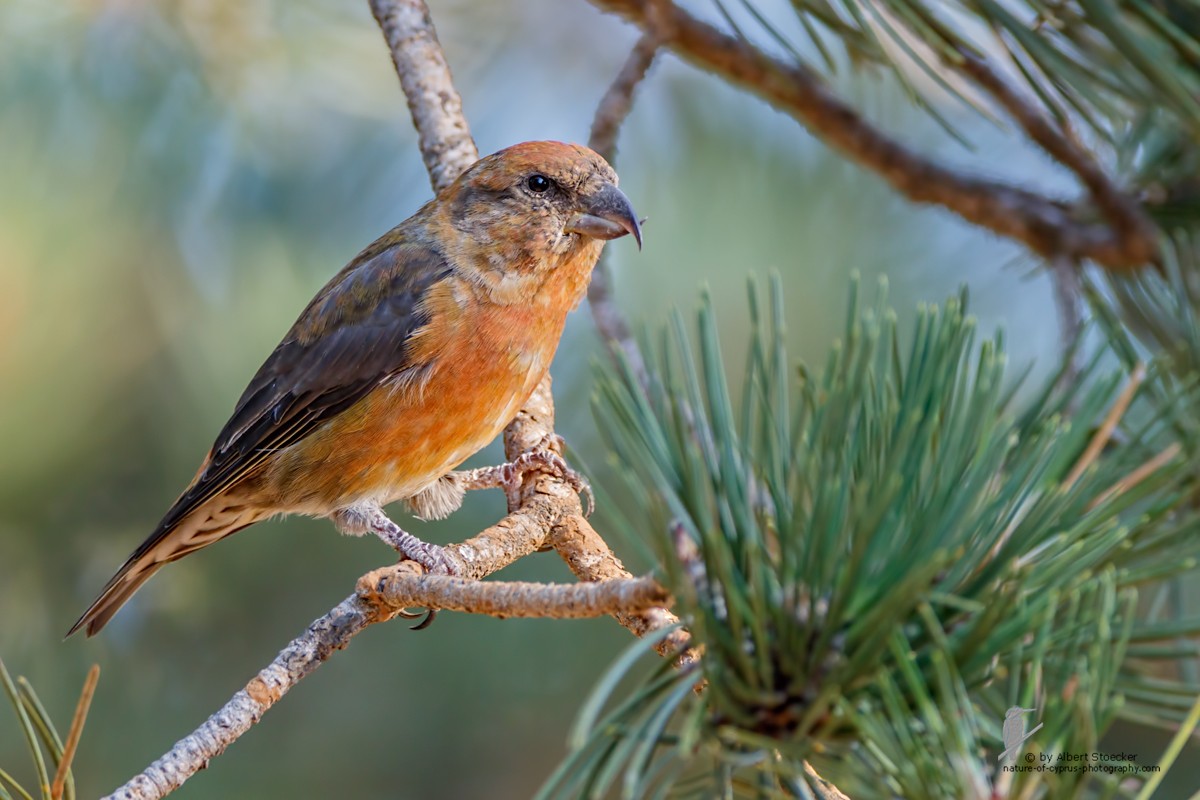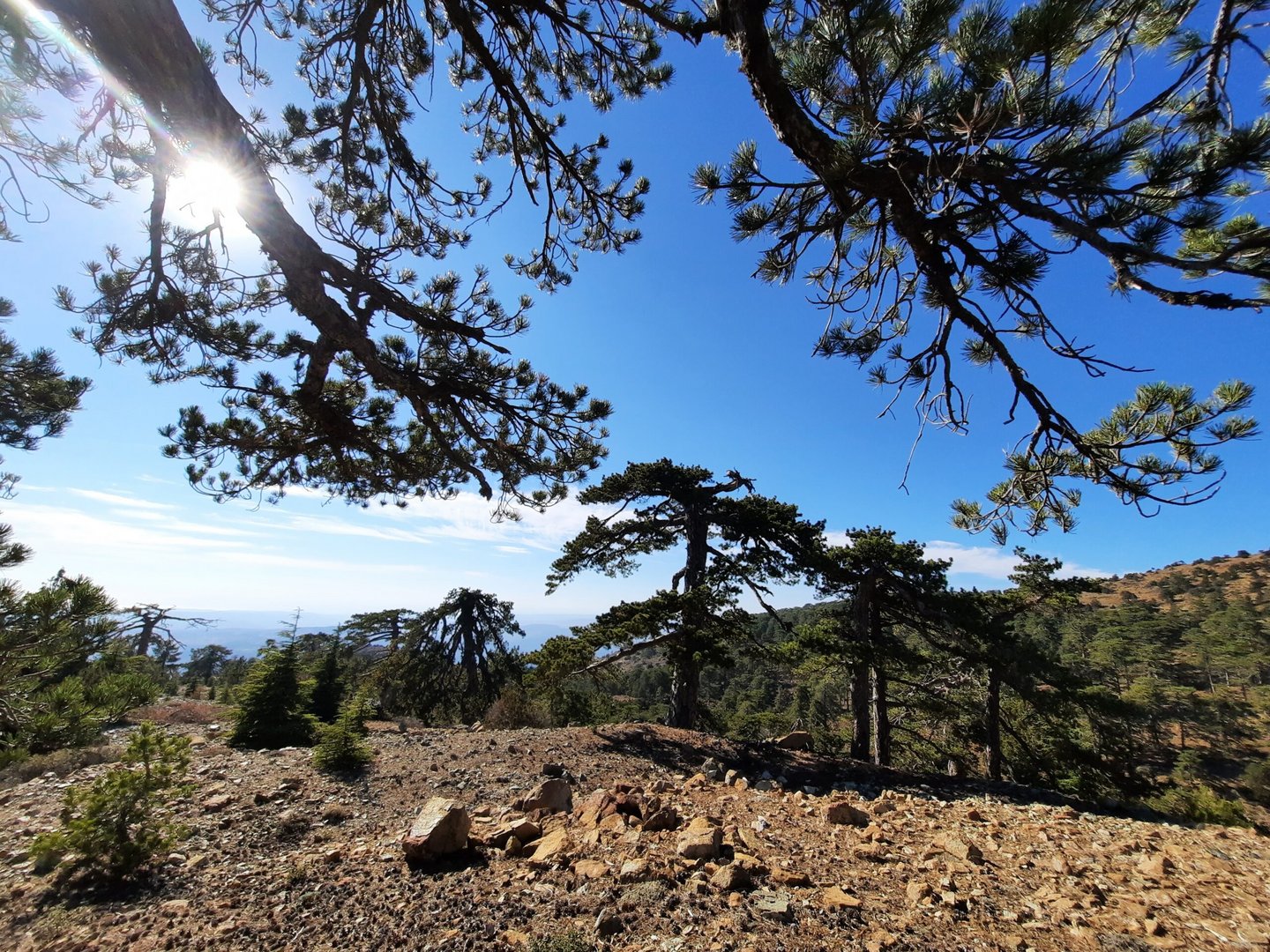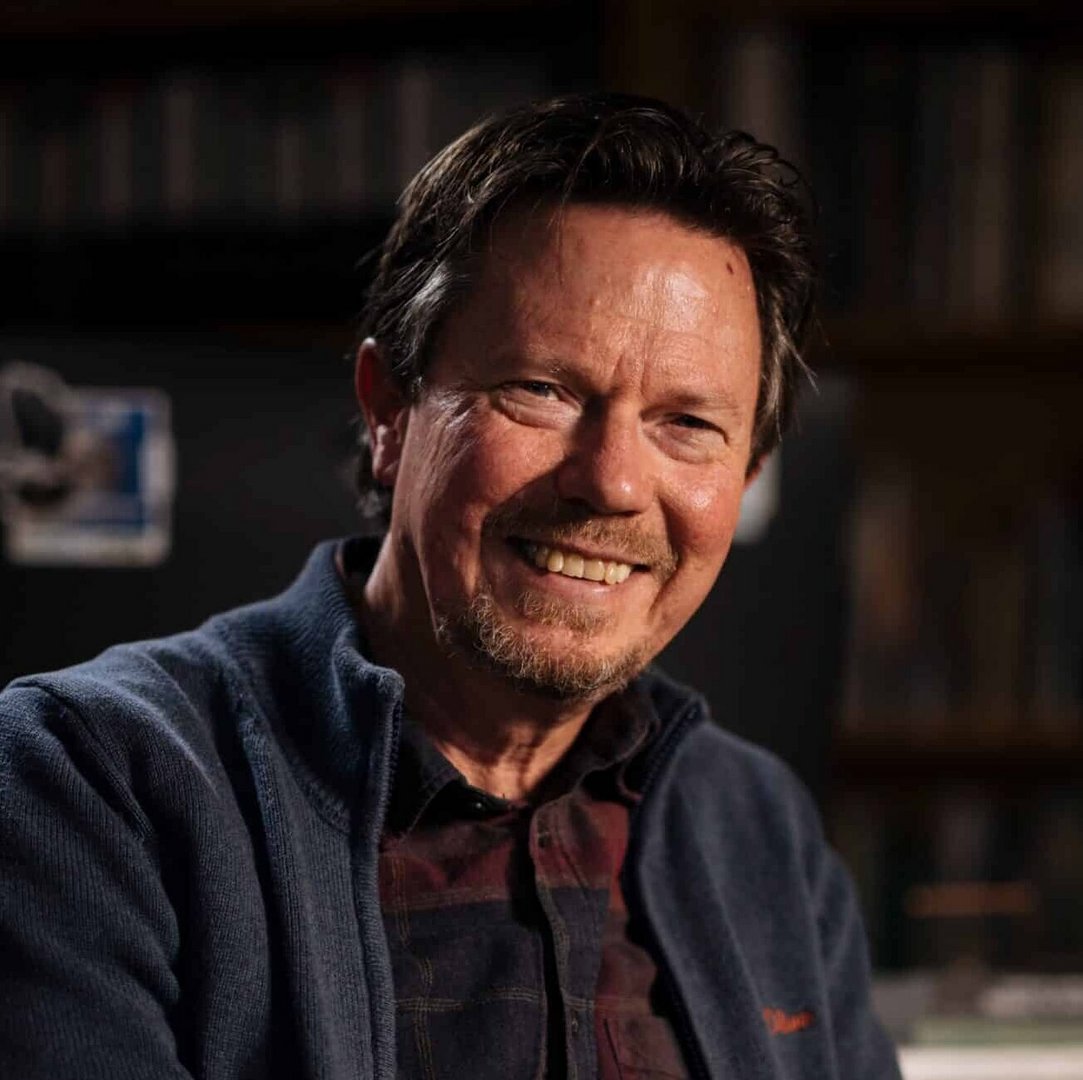Crossbills, Black Pines and Troodos are intricately linked. COP26 must make sure it stays that way
The give-away, as often, was the soft ‘pok’ sound made by a pinecone landing on the woodland floor. I turned my binoculars to the topmost branches of the great big Black Pine, and there she was, chunky shape clearly outlined against the sky. A grey-green, large-headed and cross-beaked female Crossbill! She was busy extracting kernels from a cone, aided by the cross-over bill that gives this species its name.
Crossbills are messy eaters, so cones landing below a Black Pine are a reliable sign these rare birds are around. Metallic ‘glipp’ calls announced more of the chunky finches, and three joined the pinecone-fest among the dense needles of the great pine, including an orangey individual, a male. An idyllic late autumn scene of meditative (poetic licence invoked there) extraction and munching near the top of Mount Olympus, Troodos.
In Cyprus, Crossbills (or Guillemard’s Crossbills Loxia curvirostra guillemardi, to use the full name of the sub-species found in our part of the world) are confined to the top-most reaches of the Troodos range, from about 5,000ft upwards, and to the wonderful stands of Black Pines that are found only there. Crossbills can sometimes be encountered away from these forests, especially in the winter, but they only breed amongst the Black Pines.
I had escaped up to Troodos in search of these birds. Satisfaction found.
But on the radio, while driving back down the mountain a few hours later, the news was again full of the latest on the COP26 Climate Change meeting in Glasgow. Back down to earth with a jolt.
Temperature regime is critical in determining the distribution of species in nature. Black Pines are where they are on Troodos in large part because of the cooler air up there. And the Crossbills – and many other species besides, known and unknown – are there primarily because of the habitat these impressive pines create. As average temperatures rise, and as heat waves become more frequent, the ‘suitable space’ for the pines will shift upslope. Then – unless we change things fast – it will proceed to disappear off the top of the mountain. Gone will be the pines, the Crossbills and many other species besides, a whole ecosystem.
An ecosystem relied on absolutely by the Crossbills, but also very important to us. It acts as a natural ‘sponge’, absorbing and slowly releasing precious rain and snow to feed streams and then rivers, aquifers, wetlands and dams. And that’s just one ecosystem service the Black Pine forest system provides. It also acts as a carbon sink, helping draw CO2 out of the atmosphere, mitigating the climate crisis. Even my personal enjoyment of a walk among these magnificent trees is an ecosystem service. I am sure I will not be alone in feeling life much, much poorer should we allow this forest to ‘drop off’ the top Mount Olympus.
So this column is about the climate crisis, despite the risk involved in writing on the topic while COP26 is ongoing. Perhaps, by the time you read this, the great and good that hold the power to change things will have actually arrived at binding agreements. Agreements with the ‘bite’ needed to turn the crisis round. Perhaps they will have listened to Sir David Attenborough when he urged them to turn climate change from a ‘disaster’ to a ‘triumph’. Perhaps. But my sinking feeling is that we will have something out of the Glasgow meeting, but not enough.
We all know how bad things will very likely get if we do not act, right? In fact, how bad they are already getting…
In Cyprus, official statistics show average temperatures rose by at least 1.5°C over the last century, while average rainfall was almost one-fifth lower in the period 1971-2000 compared to 1901-1930. Down the line, heat extremes are set to become the norm. Projections based on Cyprus Institute models suggest that the number of heat wave days (with temperatures above blood heat) will hit 210 a year by 2100. Half a century ago, we had ten heat wave days a year in Nicosia. The natural systems we are totally dependent on, whether these be the vegetated mountain slopes that capture precious rain for slow release or the croplands that grow our food, are creaking. Ecological tipping points loom into view that threaten to turn forests and scrubland in Cyprus into much drier, less productive systems, at the same time as our addiction to consumerism means we demand more and more from these systems.
The picture is similar worldwide. The Amazon rainforest, experts warn, is approaching a tipping-point beyond which this vital carbon sink and natural wonder, turns into a drier, far less rich habitat with the burning hazard notched up to ‘max’. The Gulf Stream, which carries tropical heat to Britain and W Europe could soon ‘switch off’, ushering in a Siberian climate to these populous areas. The list goes on and you have probably read most of it before, so I will not labour the point.
This is not meant to be a ‘doom and gloom’ piece. The issue is just too big, real, current and dangerous for that. It calls for the ‘let’s get it done’ optimism Attenborough tried to bring to proceedings in Glasgow. In fact, it screams out for it. Well-supported COP26 agreements to cut methane releases and to halt deforestation and start forest restoration bring hope, provided that, this time round, they are fully implemented.
Even our own President Nicos Anastasiades has said failure to act will lead to “unprecedented” impact on public health, ecosystems, agriculture, tourism and water resources. “The supply to our citizens of basic needs, such as food and water, is under threat,” he said at a recent conference on the impact of changing climate. The president promised more than €500m would be made available for the period 2021 to 2026, for investments and reforms that contribute to climate neutrality on our island.
But is this anything more than just talk? Government promises of sustainability do not sit easily with the continuing push for development. The ‘concrete crusade’ shows not a sign of slowing down – see state visions for precious natural areas like Akamas and Akrotiri, but not only. This vision replaces carbon sinks and natural areas with dead, sealed surfaces. And all the while there is growing international consensus that key to tackling the climate emergency is the preservation and restoration of natural systems, to mop up CO2 and build ecosystem resilience to the changes already at the door.
We also have to do an ‘about turn’ in how we power our societies. Renewables are a growing part of the energy mix in Cyprus, as they must be. But still too many wind farms and PV plants are licensed in natural and semi-natural areas, areas that could and should be managed as carbon sinks and space for nature. And looming over all this in the seemingly unstoppable drive for natural gas exploitation. Cleaner than other fossil fuels it may be, but it is still a monumental ‘wrong turn’ at a time when the world needs to ditch carbon-based fuels, and fast.
It may read like it, but I am not pointing the finger at Cyprus in particular; just using what I know to illustrate a worldwide problem and failure to act in a joined-up-thinking way. The climate crisis needs all of us to do what we can on an individual level, but more than that, it needs decisive, brave collective action at state level, and that is what we should all be shouting for.
If you are unmoved by the plight of the Guillemard’s Crossbill on its Black Pine, then just do it for yourself, your loved ones, your children and grandchildren.
Martin Hellicar works as director of local nature conservation NGO BirdLife Cyprus. A PhD ecologist and former journalist, he is fortunate enough to work for an organisation whose positions closely match his, though the opinions expressed here are entirely his own








Click here to change your cookie preferences